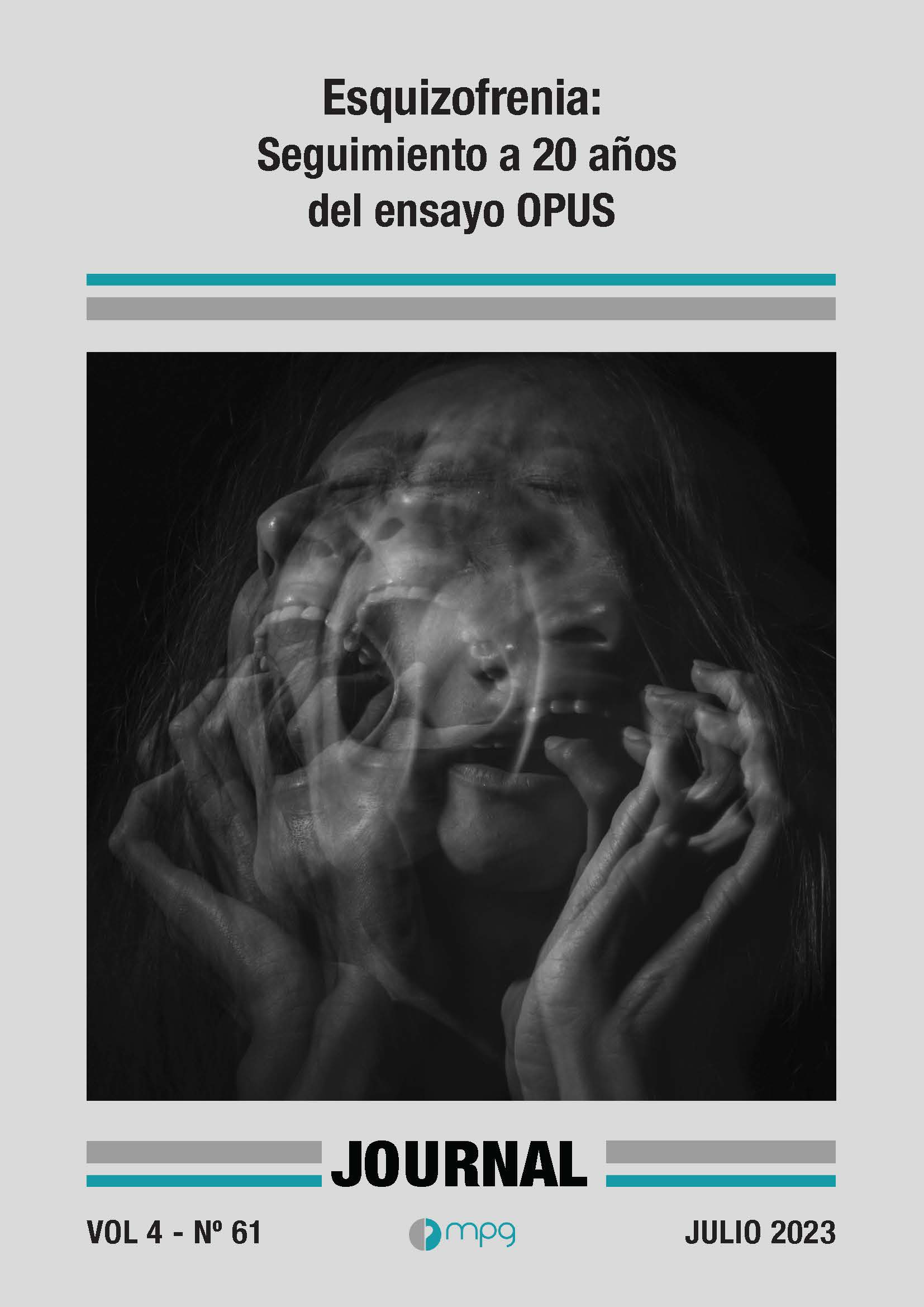11. Esquizofrenia: Seguimiento a 20 años del ensayo OPUS
Palabras clave:
Servicios de Intervención Temprana, esquizofrenia, psicosisResumen
Realizamos un comentario sobre el estudio de seguimiento a 20 años del ensayo clínico aleatorizado OPUS, en el que se comparan los resultados obtenidos entre servicios de intervención temprana y el tratamiento habitual en pacientes con un primer episodio de esquizofrenia. La muestra inicial del estudio incluyó a 547 pacientes, de los que 164 participaron en el seguimiento a 20 años. Los resultados sugieren que, aunque la intervención temprana puede ser beneficiosa a corto plazo, no parece que existan diferencias a largo plazo en comparación con el tratamiento habitual.
We provide a commentary on the 20-year follow-up study of the randomized clinical trial OPUS, comparing the outcomes between early intervention services and standard treatment in patients with a first episode of schizophrenia. The initial sample of the study included 547 patients, of whom 164 participated in the 20-year follow-up. The results suggest that while early intervention may be beneficial in the short term, there does not appear to be long-term differences compared to standard treatment.
Referencias
Albert N, Weibell MA. The outcome of early intervention in first episode psychosis. Int Rev Psychiatry. 2019 Aug-Sep;31(5-6):413-424. doi: 10.1080/09540261.2019.1643703. Epub 2019 Aug 28. PMID: 31456455.
Hyatt AS, Hasler V, Wilner EK. What happens after early intervention in first-episode psychosis? Limitations of existing service models and an agenda for the future. Curr Opin Psychiatry. 2022 May 1;35(3):165-170. doi: 10.1097/YCO.0000000000000785. Epub 2022 Feb 3. PMID: 35579870.




MPG Journal - Política de privacidad